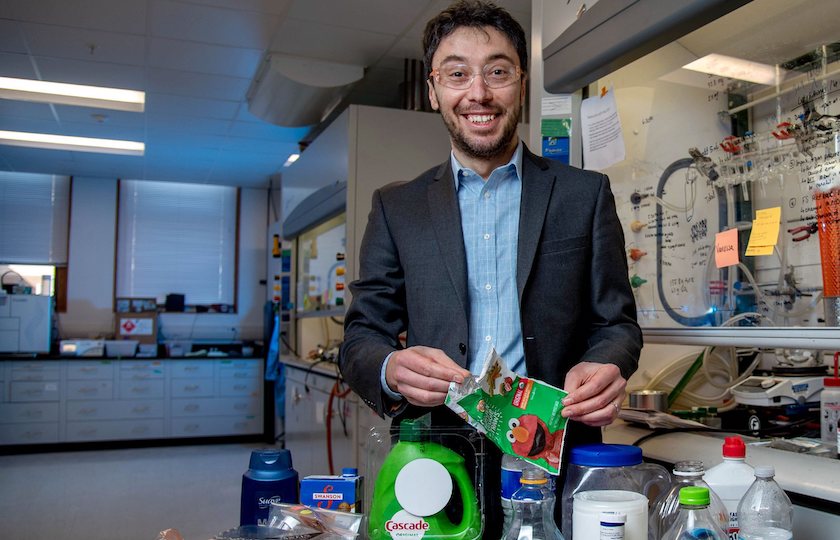Scientists in the US have discovered a way to convert polyethylene into propylene to expand opportunities for reused plastics and help reduce greenhouse gas emissions.
A team from the University of Illinois Urbana-Champaign and the University of California, Santa Barbara has teamed up with industrial giant Dow to crack each very long PE molecule many times into smaller pieces, which are the propylene molecules.
Polyethylene (PE) is the most widely produced plastic in the world, while polypropylene (PP) is the second-most. Finding ways to boost the use of reused plastics will reduce the number of single-use bags and containers finding their way into landfill.
One student associated with the project, Garrett Strong, explained that if just 20 per cent of the world’s PE could be recovered and converted via this route, it could represent a potential savings of GHG emissions comparable to taking 3 million cars off the road.
Damien Guironnet, a professor of chemical and biomolecular engineering at Illinois, said if industry is to upcycle a significant fraction of the more than 100 million tons of plastic waste generated each year, solutions that are highly scalable are required. That’s why the scientists believe their project is so significant.
According to Susannah Scott, a professor at UC Santa Barbara, the “breakthrough transformation” allows the production of a new polymer, a first step in building a circular economy for plastics.
“We started by conceptualising this approach and demonstrated its promise first through theoretical modelling – now we have proved that it can be done experimentally in a way that is scalable and potentially applicable to current industry demands,” added Guironnet.
The scientists have built a reactor that creates a continuous flow of PE that can be converted into PP easily by using current technology.
“Our team demonstrated the chemistry in a flow reactor we developed to produce propylene highly selectively and continuously. This is a key advance to address the immense volume of the problem that we are facing.”
As a funder of this experiment, Dow says it is committed to discovering new ways to eliminate plastic waste and is encouraged by the team’s approach.
Recommended reading: NZ researchers find a way to convert single-use plastics into insulation foam.



